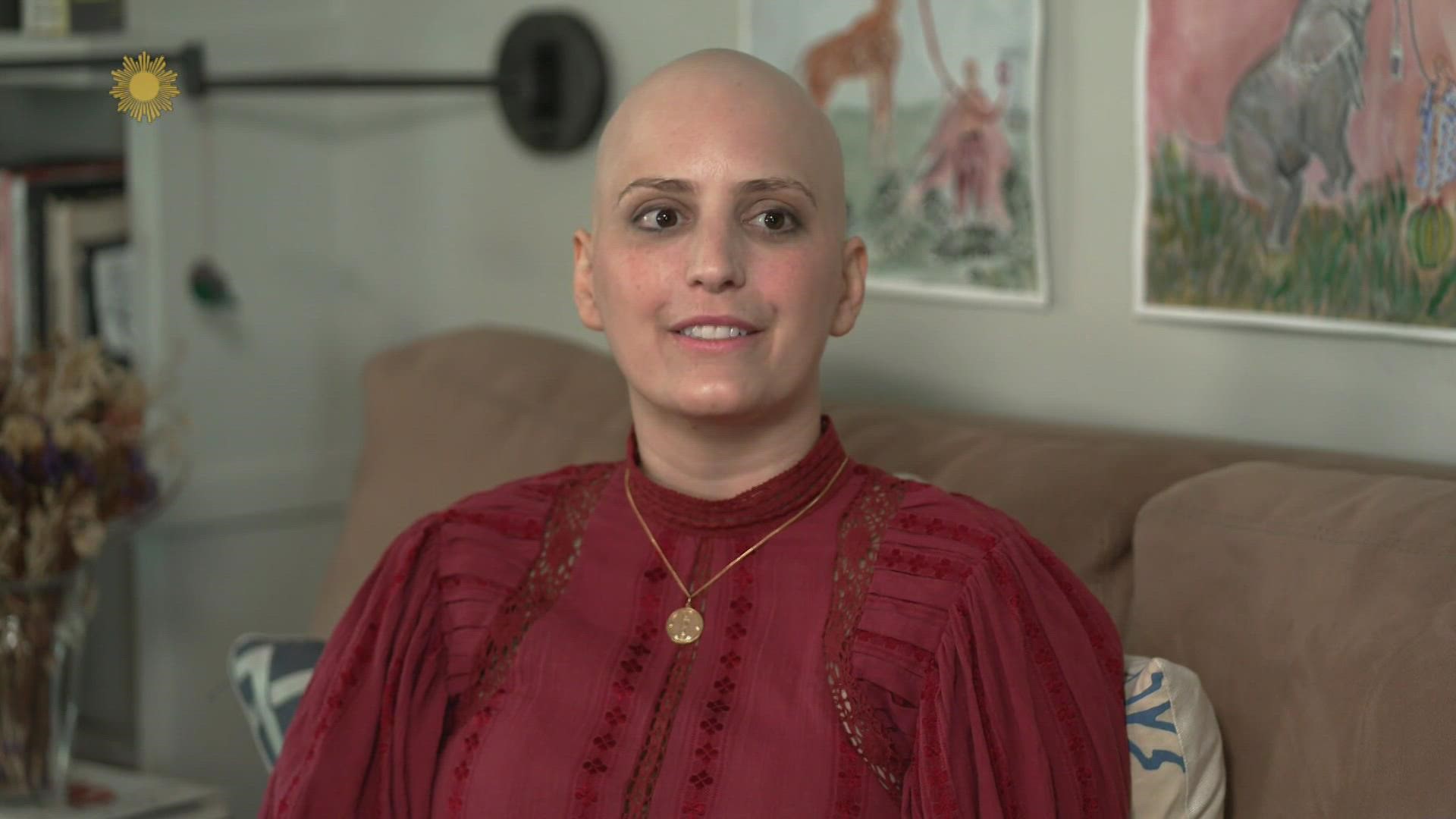NEW ORLEANS — Jon Batiste is shining a spotlight on the musical talent that comes out of New Orleans. At the same time, his new bride is bringing awareness to a rare type of blood cancer. Now she is putting out a call to action for bone marrow donors.
“When I move my body like this I don't know why, but I feel like freedom. I feel songs that take me back and I let go with so much freedom,” Jon Batiste sings on the Grammy stage.
When you see Jon Batiste move his body to his music, it makes you want to move yours, but at home his new bride is fighting a cancer battle in her own body.
“We got married the day before I was admitted to the hospital to undergo my bone marrow transplant,” Suleika Jaouad, 33, Batiste's wife and AML patient, tells CBS This Morning.
Suleika Jaouad has written publicly, including a memoir about having AML or acute myelogenous leukemia. It’s a type of blood cancer involving the white blood cells.
Dr. John Stewart is the Director of the LSU LCMC Cancer Center. He has not treated Suleika.
“It’s very rare, OK, so we think it's about .5 percent of cancers that occur. The causes are still yet to be delineated,” said Dr. Stewart.
Acute Myelogenous Leukemia (AML)
TREATMENTS
- Chemotherapy
- Radiation
- Stem cells from your own bone marrow
- Stem cells from donor bone marrow
Suleika first had AML when she was 22. She told CBS that In December she found out it had come back.
“So it is not uncommon for it to come back, and so if we kind of think about the numbers, about 20,000 cases are diagnosed in the United States a year, and unfortunately about 11,000 patients die from AML every year,” explained Dr. Stewart.
“So the last time I had a bone marrow transplant, my brother was my donor. This time around they wanted to find a different donor. I’m mixed ethnicity. My father is Tunisian, from North Africa. My mom is Swiss and they searched every bone marrow registry they could find, and I came up with zero matches,” said Jaouad.
Dr. Stewart says the more people, and the more diverse the population that signs up to be a donor, gives patients who have this type of leukemia ,a better chance of survival. And it's simple to sign up. It’s a simple blood test or a simple saliva swab inside your mouth on your cheek.
Suleika says she's fortunate that her brother was again her donor this time around, but she has this request.
“So I urge everyone, it doesn't matter where you come from, what race you are, to sign up to be a donor,” said Jaouad.
She calls it an opportunity to save a life.
To get a swab kit or donate umbilical cord blood: https://bethematch.org/

